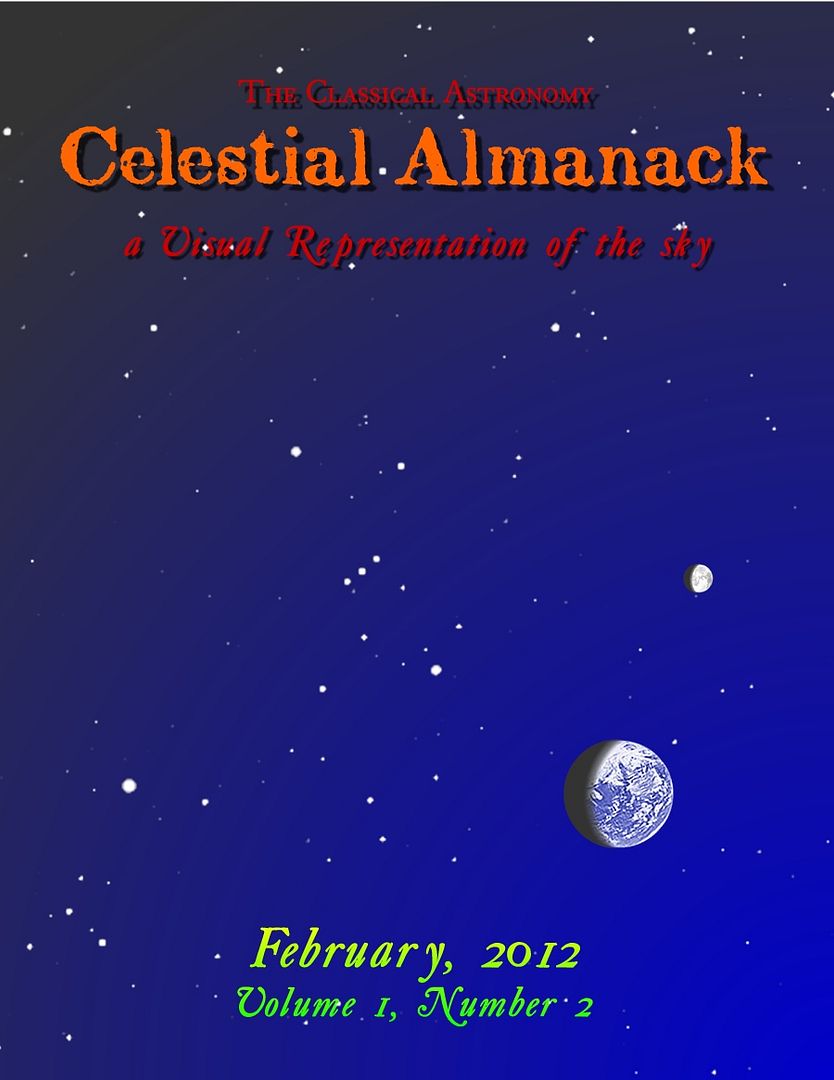But if you are a lot like our family, you also have a hard time picking out the stars, constellations, and planets. We'll stare for what seems like forever, second guessing the images we see, get frustrated, and go inside...lol!
Classical Astronomy's monthly Celestial Almanack is your illustrated guide to learning the night sky, from Fourth Day Press. February's edition marks only the second in this first volume.
In February, some things you will learn include:
* The constellation Orion dominating the evening skies, and how it can be used for finding 35 constellations.
* Jupiter and Venus drawing closer this month, approaching a spectacular conjunction in March.
But that is not all! Do you know why we have a leap year? Why and how the calendar was developed?
Over the next six months, the Celestial Almanack will be promoting three very rare sky events for 2012:
* The Jupiter-Venus conjunction on March 15 (once every 24 yrs)
* The annular solar eclipse on May 20 (once every 18 yrs)
* The transit of Venus on June 5 (last one until 2117!)
Over the next six months, the Celestial Almanack will be promoting three very rare sky events for 2012:
* The Jupiter-Venus conjunction on March 15 (once every 24 yrs)
* The annular solar eclipse on May 20 (once every 18 yrs)
* The transit of Venus on June 5 (last one until 2117!)
My Thoughts: As an adult, I enjoyed reading through the entire February Almanack. I learned many new things and am excited to take it outside and get started. Funny Bunny is just 8 years old so I plan to highlight the parts to discuss with her and save the rest for when she is older and can study it on her own. There are many parts I think she will enjoy and I know she will be excited to get outside and research the night sky!
Find Out More: You can find out more online about the February Celestial Almanack. It is only $3 for a PDF version. January's edition is on sale for only $2 and both have 5-star reviews. You can also get more information at Classical Astronomy.
My Crewmates are also reviewing the Celestial Almanack, so you can check out what they think HERE.














4 comments:
Christine, I have always been fascinated by the stars and made sure one of my science classes in college included an astronomy class. I was so disappointed that we didn't spend more time searching the stars. My favorite constellation is Orion and I never knew that it was the key to finding so many others. I will have to look at that and the next warm evening when the night sky is clear I need to take my kids out, lay that blanket on the grass and point out the stars. Thanks for the review!!!
Sounds great! I love looking at the stars when we go camping - when it's warm at night! ;)
We enjoyed being able to use and review this Almanack as well. Great graphics and format!
Julieanne
http://www.JoyInOurJourney.com
I think every person has a natural interest in this!!
Post a Comment
I'd love to hear from you!